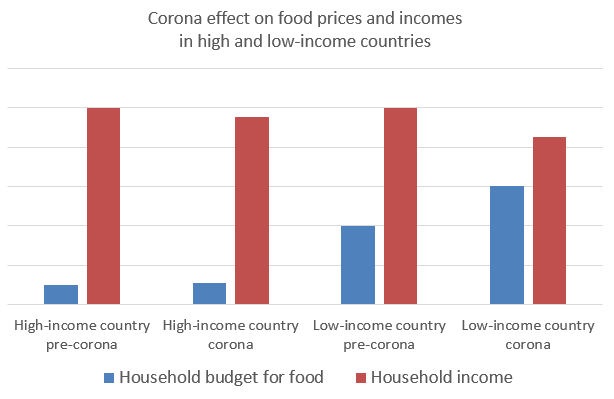The amount of household income spent on food varies greatly by country. In countries like the U.S., Singapore and Australia, less than 10% of consumers’ income goes to food. Households spend more than 40% of their income on food in countries like Nigeria, Kazakhstan and Algeria.
Of course, these are average numbers. Even in rich countries, the poorest households spend a much larger percentage of their income on food than the wealthiest.
How does the coronavirus affect food affordability? Affordability is a function of incomes and food prices.
Incomes
White collar workers can work from home during lockdowns. In countries with a strong social safety net, the government pays unemployment benefits to people who lose their jobs. The income loss of households due to lockdowns is modest.
On the other hand, lockdowns are devastating if they stop the informal economy and the state doesn’t support people’s incomes. Families who depend on remittances are in trouble if their relatives can’t earn and send money.
The corona crisis has hit certain sectors especially hard. Nations that depend on tourism or on the export of oil or garments face a severe dollar income shock.
Food prices
The coronavirus has raised retail food prices in multiple ways.
Several countries have limited or banned food exports. Travel restrictions prevent migrant farm workers from harvesting crops. Milk and vegetables go to waste at farms because of supply chain disruptions. Farmers are denied access to markets in cities. Lockdowns make food exports difficult.
Food prices are skyrocketing from West Africa to the Middle East.

WEIRD economists should take into account inequality before advocating lockdowns.
If you want to learn more about the impact of Covid-19 on food security, you should follow the Food Pandemic Twitter account of R. Zurayk, N. Amhaz, A.Yehya. They share a lot of news from Africa and the Arab World.
